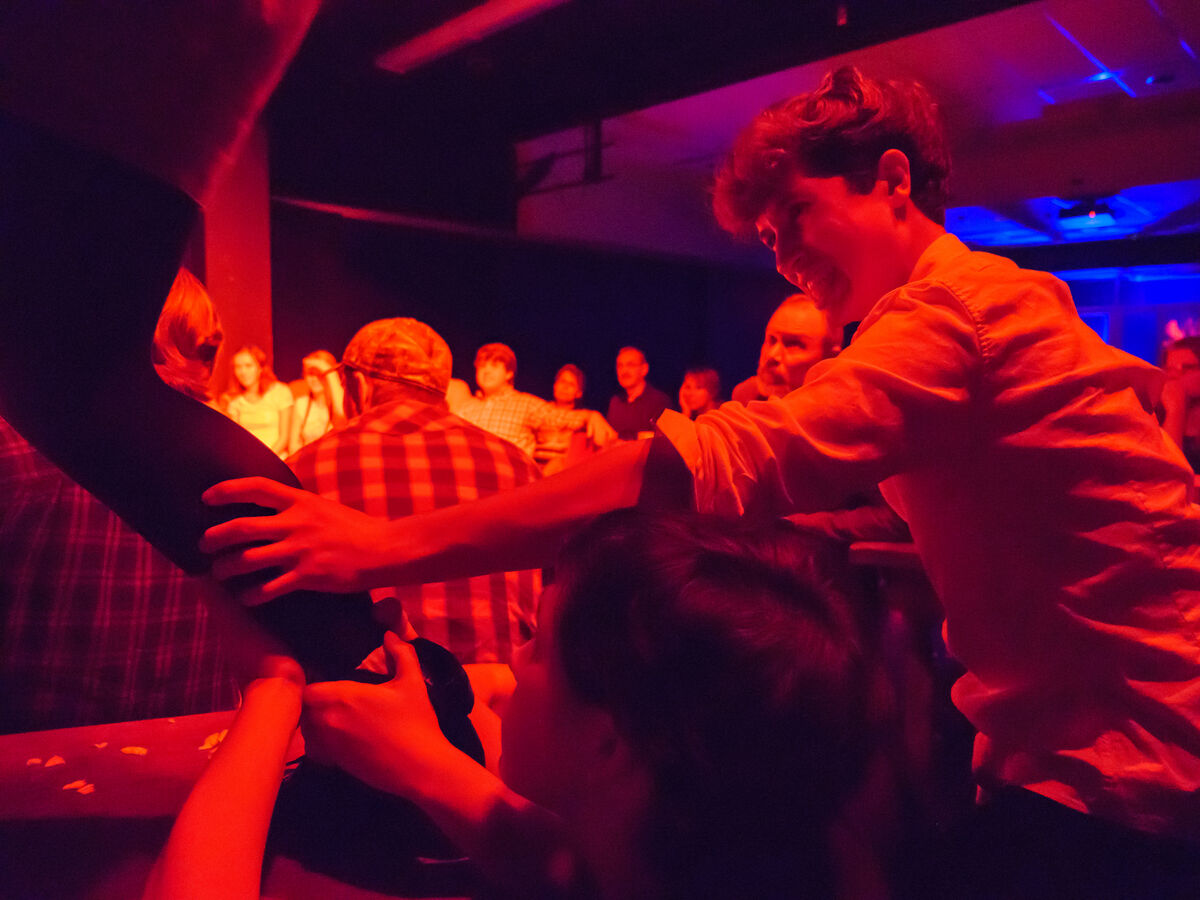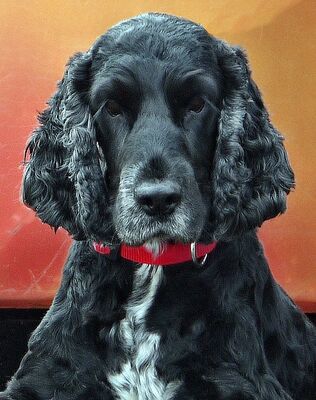Shutter Type Used
Feb 29, 2024 06:14:16 #
CoachP wrote:
Wondering what type of shutter the majority of photographers use: Mechanical or Electronic? and what Camera System.
Mechanical, D500 & D850 why the question?
Feb 29, 2024 06:31:33 #
billnikon
Loc: Pennsylvania/Ohio/Florida/Maui/Oregon/Vermont
CoachP wrote:
Wondering what type of shutter the majority of photographers use: Mechanical or Electronic? and what Camera System.
Depends on the camera, many newer camera's give you a choice. Some do not. The Nikon Z9 is only electronic, I believe this is the way all newer camera's will be coming out using. They should outlast mechanical but we will see.
The knock on electronic shutters is the limited flash sync, but this is changing too. The new Sony a9III has a global shutter that will flash sync at any speed.
Personally I use the electronic shutter on my Sony a1 cause it is silent. And I get more fps using electronic shutter for birds in flight.
I fondly remember my very loud, very clunky Nikon D850, what a tank, when I shot everyone within a 100 yards knew what camara I was using.
Again, I believe mechanical shutters are on their way out, again, the Z9 saved some money for us consumers by only mounting an electronic shutter and coming in at a favorable list price.
Feb 29, 2024 06:47:35 #
I most often use mechanical with my R5. I use electronic when I want 20fps sports shooting. I don’t find rolling shutter too much of an issue. The distortion of balls is minimal and looks a lot like standard motion blur mostly. In some artificial light I do see banding that is annoying but usually unobjectionable. The mechanical shutter is so quiet I don’t feel the need to use electronic even for weddings or even plays. Electronic first curtain may be slightly less noisy. I use it on occasion.
Feb 29, 2024 07:21:08 #
I am using Olympus micro fourths thirds system. My cameras have mechanical and electronic shutters. I have used the electronic shutter for sequential shooting and landscapes but most of the time I am using the mechanical one.
Very soon a majority of the cameras made will have what I believe is called Global Shutter. It will allow flash sync. speed at any shutter speed besides allowing faster shutter speeds of 130 FPS or more.
Very soon a majority of the cameras made will have what I believe is called Global Shutter. It will allow flash sync. speed at any shutter speed besides allowing faster shutter speeds of 130 FPS or more.
Feb 29, 2024 08:49:29 #
I've switched over to electronic almost exclusively when not shooting with a flash. It is helpful in museums and places where I want to be stealthy. Also, while on a nature walk in Africa our guide forbid the use of cameras until he found out I had a way to take shots without the cur-plunk of a shutter. That proved to be prophetic once we came across a rather cranky rhino. Couldn't see us but sure heard us.
Feb 29, 2024 09:26:41 #
CoachP wrote:
Wondering what type of shutter the majority of photographers use: Mechanical or Electronic? and what Camera System.
I think I have at least one of each and a both. The shutter was not the reason for purchasing any of my cameras. Makes little difference to me.
Feb 29, 2024 10:35:47 #
CoachP wrote:
Wondering what type of shutter the majority of photographers use: Mechanical or Electronic? and what Camera System.
BOTH. I use Lumix gear.
Each shutter type has distinct advantages for certain types of applications, and distinct disadvantages for other applications.
I do a LOT of copy work — artwork, documents, photo prints, slides, negatives, stamps... The ELECTRONIC shutter is perfect for it. It eliminates all camera-generated vibration except for the automatic diaphragm stopping down. Coupled with remote release or two-second self timer, it ensures sharp results.
You DO need to be working with a continuous output light source when using an electronic shutter. Many cheap LED and fluorescent light sources flicker. This change in light intensity and color balance over time is particularly a problem in buildings using 277-volt lighting circuits with cheap "ceiling troffers" (2'x4' four-tube fluorescent fixtures).
I once had to do an impromptu copy job using clamp lamps and cheap 5000K LEDs from Home Depot. The only way I could avoid "vertical rolling bars" in the copies was to increase my shutter *time* to double the power line frequency (i.e.; 1/30 second for 60 Hz AC power).
Humans don't see that flicker, but a camera with a digital sensor WILL see it under the right conditions. My made-for-video LED light panels and copy stand lights are flicker free. Some cameras have integrated flicker reduction technology, but many don't.
Any time you want to do candid or event photography in STEALTH mode (think: candid photojournalism, weddings, plays, concerts…), the electronic shutter is great.
In my youth, I did a lot of candid photography for school yearbooks. After the first click of my shutter, I could no longer fade into the background. I HATED that, because I like to catch real expressions without influencing events or drawing attention to my work.
To me, there is nothing worse than watching a hard-to-hear event like a wedding or White House Oval Office meeting, and hearing some rude photographers' dSLRs clacking away in the middle of it. Church leaders and other venue managers are wising up and putting restrictions on that. In the age of mirrorless interchangeable lens cameras, there is simply no need to tolerate camera noise at most events.
As a Freshman in college, back in 2017, my son had a lead role as a satanic character in a play. It was an audience participation play, where the audience is seated in a bar/restaurant setting on the stage. The actors work around them, and on the tables in front of them, as shown below. (That's my son with his sleeve rolled up and tongue stuck out.) I was invited to photograph the play for the director. My son reserved me a seat at the on-stage table where the peak action would occur, and I used my GH4 in electronic shutter mode to snap over 300 frames of the action. It was as if no one knew I was there. A lady next to me asked me why I was holding the camera to my face if I was never going to use it!
Conversely, if you are panning when photographing fast action sports, racing, birds in flight, cheetahs chasing gazelles or something like that, unless you have a true GLOBAL READOUT shutter, you do not want to use an electronic shutter, because it leaves a "rolling shutter" effect. That's where vertical lines in the scene all tilt to one side of the frame. This phenomenon is caused by the time difference in the electronic line-by-line readout from the top of the scene to the bottom of the scene. Each line takes a certain amount of time to be read into the buffer memory, so there's a tiny position change from line to line. The faster the readout speed, the less rolling shutter effect you get. Micro 4/3 sensors are smaller than full frame sensors, so there's less rolling shutter with those smaller sensors, all other things being equal (they never are).
If your subject is moving slowly, or not at all, rolling shutter is not a factor.
Feb 29, 2024 11:00:25 #
rwm283main wrote:
Mechanical. I will use electronic if I am taking photos at a concert, granddaughter’s school programs, etc.
Fujifilm X series cameras.
Fujifilm X series cameras.
Wow. My answer exactly.
Feb 29, 2024 11:31:39 #
Mechanical Copal shutters, depending on camera and shutter speed etc, can set up vibrations which blur the shot in the same way as does mirror slap on DSLRs.
Feb 29, 2024 16:46:55 #
Nigel7
Loc: Worcestershire. UK.
My new Canon R7 has 3 options, Mechanical, Electronic, and Electronic 1st Curtain [Default]. I haven't yet experimented with them. However my pocketbook says you can't use flash with full Electronic, and also warns of general issues with full Electronic shutters including distortion with fast moving subjects and fast shutter speeds, banding under artificial lights at shutter speeds faster than 1/50th sec, and finally incomplete defocused image areas with wide apertures and fast shutter speeds. Sounds like a lot to learn and trial.
Feb 29, 2024 18:43:41 #
burkphoto wrote:
BOTH. I use Lumix gear. br br Each shutter type ... (show quote)
Such a superb capture of the excitement 🎈🎈🎈🎈🎈
Mar 1, 2024 03:15:44 #
burkphoto wrote:
I think you mean 2x the power line period, which is 16.7mS so change to 33.4 mS ~1/30 Sec ?BOTH. ...The only way I could avoid "vertical rolling bars" in the copies was to increase my shutter *time* to double the power line frequency (i.e.; 1/30 second for 60 Hz AC power).
Mar 1, 2024 11:46:32 #
JD750 wrote:
I think you mean 2x the power line period, which is 16.7mS so change to 33.4 mS ~1/30 Sec ?
I think I said 1/30…
Mar 1, 2024 15:22:00 #
Randyfrieder
Loc: Long Island, New York
Z9 only has electronic shutter.
What a game changer compared to my D850. It’s silent, and works with flash.
The silence is so important, when shooting behind the scenes at video shoots. I can shoot the actual takes, and not just the rehearsal scenes.
And , no one can tell (when not using flash) whether I am shooting 1fps or 20fps.
And of course it is an amazing camera body
What a game changer compared to my D850. It’s silent, and works with flash.
The silence is so important, when shooting behind the scenes at video shoots. I can shoot the actual takes, and not just the rehearsal scenes.
And , no one can tell (when not using flash) whether I am shooting 1fps or 20fps.
And of course it is an amazing camera body
Mar 1, 2024 15:52:18 #
Randyfrieder wrote:
Z9 only has electronic shutter.
What a game changer compared to my D850. It’s silent, and works with flash.
The silence is so important, when shooting behind the scenes at video shoots. I can shoot the actual takes, and not just the rehearsal scenes.
And , no one can tell (when not using flash) whether I am shooting 1fps or 20fps.
And of course it is an amazing camera body
What a game changer compared to my D850. It’s silent, and works with flash.
The silence is so important, when shooting behind the scenes at video shoots. I can shoot the actual takes, and not just the rehearsal scenes.
And , no one can tell (when not using flash) whether I am shooting 1fps or 20fps.
And of course it is an amazing camera body
Electronic shutters are revolutionary, IMHO. Not making noise or attracting attention to the photographer is essential for making images without altering peoples' behavior. The articulating OLED screen on my camera is another game changer, because it allows working surreptitiously at events, and without leaning over my studio copy stand.
If you want to reply, then register here. Registration is free and your account is created instantly, so you can post right away.










